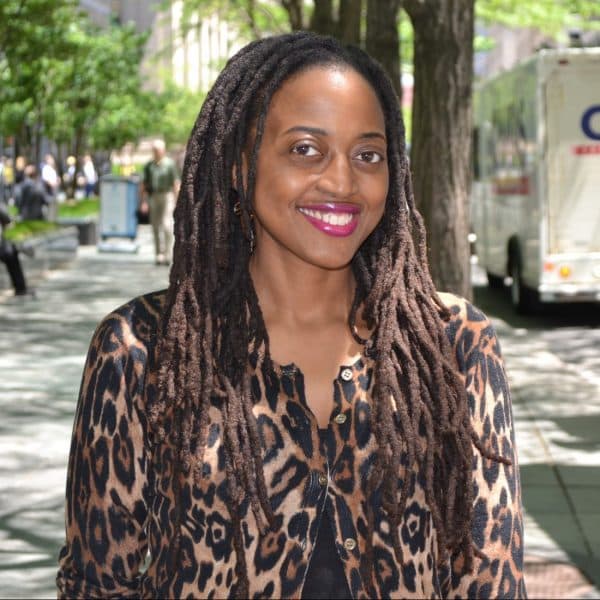Advertisement
Review
Lydia Diamond stays true blue to Toni Morrison's novel at the Huntington Theatre
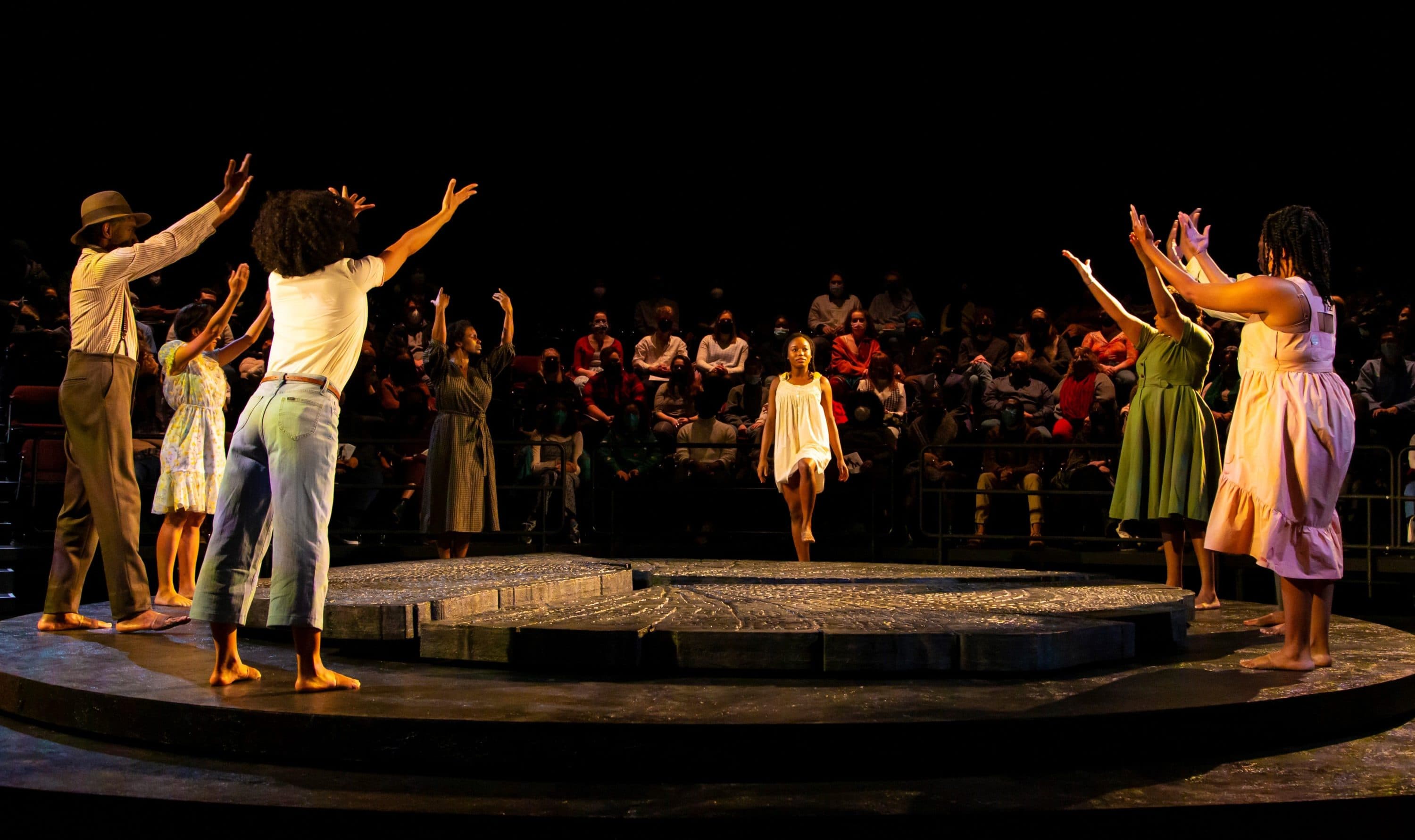
Plump with pain, the story of a little Black girl's desire for blue eyes amid trauma and racism still finds a way to center love and compassion in Lydia R. Diamond's stage adaption of Toni Morrison’s "The Bluest Eye" at the Huntington Theatre Company (through March 26).
Written during the 1960s, this was Morrison’s first novel and it clearly demonstrates the great American author’s ability to treat racism imaginatively and symbolically. She couldn’t be better served than by Diamond, one of the most essential theatrical chroniclers (“Stick Fly”) of contemporary American life, Black or otherwise.
Directed by Awoye Timpo, the beautifully woven narrative — set in Morrison's hometown of Lorain, Ohio in 1941 — treats the tragedies of its main character Pecola Breedlove and others with great care. Neither the book nor the play makes excuses for atrocities rendered. Instead, it takes the time to paint a fuller picture of each person, detailing all the little knicks and micro-aggressions that over time make a macro impact.
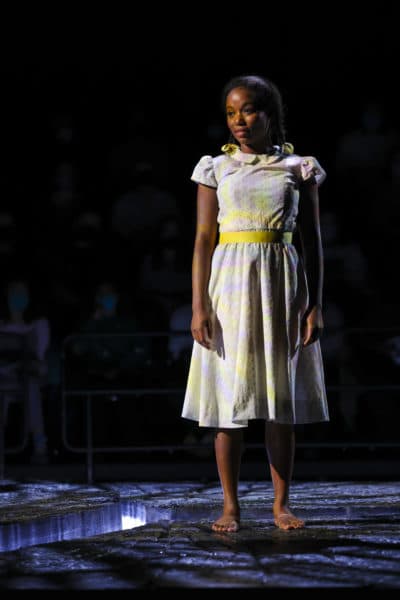
The top-tier cast includes Hadar Busia-Singleton, daughter of late director John Singleton and “The Color Purple’s” Akosua Busia as the soft-spoken Pecola. Busia-Singleton's innocent Pecola makes herself small, shrinking, keeping her head down and shying away from anything unseemly. Pecola and the rest of the Breedloves have been labeled ugly. It's not their features that make them so; it's the internalized racism that told them so which they've accepted and adorned. Pecola's classmates tease her and the white adults, such as her teacher and the local shopkeeper, don't really see her. Her invisibility is wince-worthy. Because of this, Pecola firmly believes that being blue-eyed will help others find her pretty and worthy to look upon.
"Look at pretty-eyed Pecola. We mustn't do bad things in front of those pretty eyes," she thinks.
Timpo's direction for the show is informed by Black story-telling rituals. The audience encircles the cast, who perform on what looks like a flat, circular tree stump cracked with age. Overhead, there's a branch-like structure that lowers throughout the performance through which the lighting moves, casting shadows and ushering in the sense of foreboding. The intimate circle feels like gathering around a fire for a message-laden tale, this one punctuated with a bit of call and response and Mrs. Breedlove's (McKenzie Frye) rendition of "Precious Lord." However, some of the actors were more cognizant than others about performing to the other side of the circle. A rotating stage could further complement the experience.
But each performer gets a moment in the spotlight. Frye's Mrs. Breedlove shares a chilling, emotionally rife story about giving birth that highlights the unfair treatment of her by hospital staff (disparities that still exist). Maureen (Lindsley Howard) spends time with Pecola and narrators and sisters Claudia (Brittany-Laurelle) and Frieda (Alexandria King) before the girls end up in a memorable squabble. Ramona Lisa Alexander is perfect as the ultra-fussy but undeniably loving Mama.
Advertisement
"Mama meant well. In our household, there was love. Love from mama and daddy, thick and dark as Alaga syrup. I could smell it-taste it-sweet, musty, with an edge of wintergreen in its base," Claudia says.
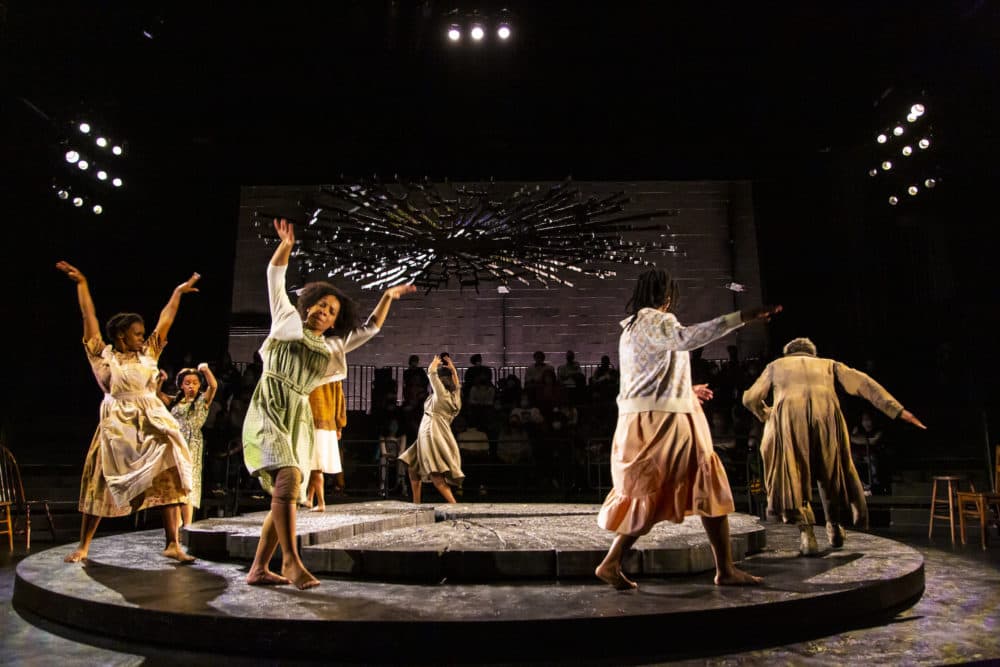
Mama's girls Claudia and Frieda share at the beginning that they're trying to work out the how and the why of their friend Pecola's rape. They hope Pecola, who slept between them when she lived with them for a time, delivers a healthy baby. The two bury marigold seeds and pray that if the marigolds bloom, then Pecola's baby will live and thrive.
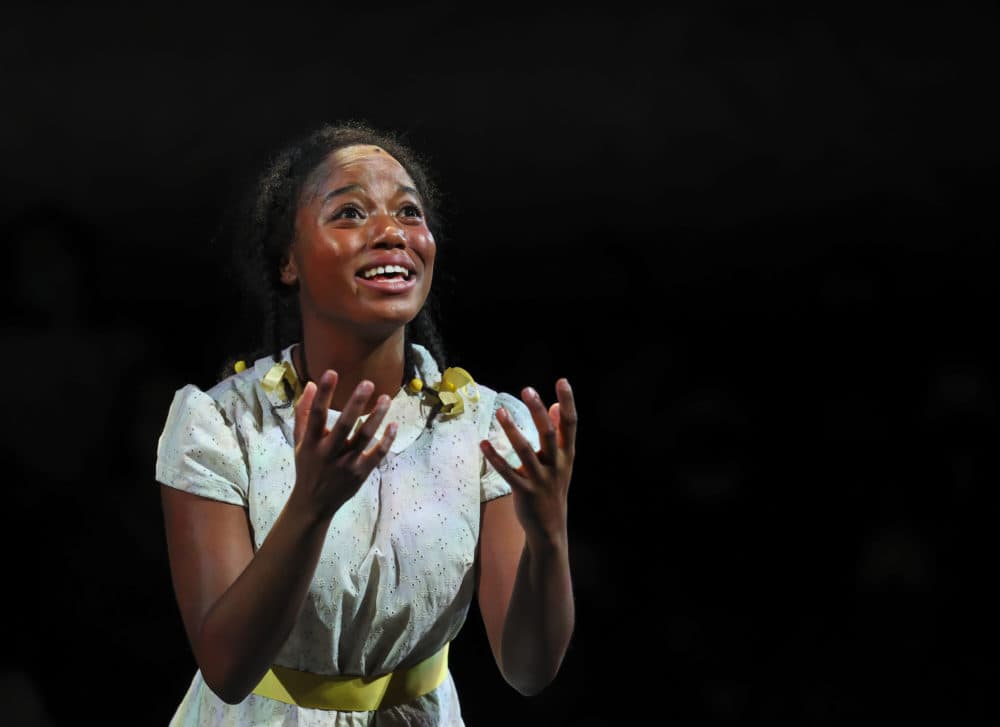
Claudia and Frieda offer in detail the how of Pecola’s predicament. But the why, will never be acceptable. The anguish is too much to contend with. But, despite the darker themes tackled in "The Bluest Eye," the joyful singing, laughter, and love in Claudia and Frieda's friendship with Pecola strikes a welcome balance in a sometimes too-hard world.
The Huntington Theatre Company’s “The Bluest Eye” runs through March 26 at the Calderwood Pavilion. The digital version will be available until April 9.
